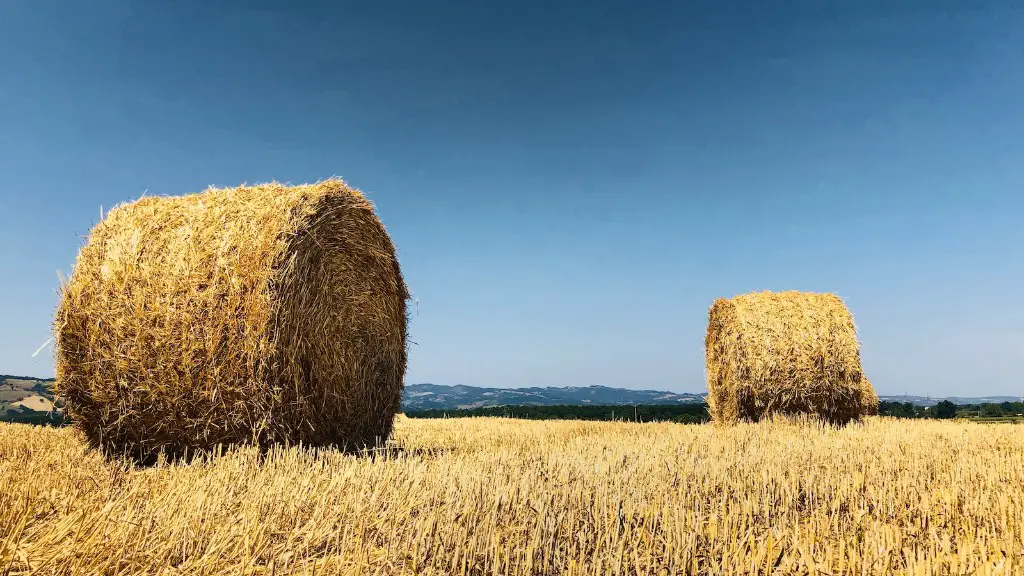Agriculture offers a wide array of employment opportunities, from labourers to scientists and from gardeners to farmers. It provides decent-paying jobs for those who are often unskilled. Because agriculture is one of the oldest branches of human activity, it is an important aspect of the labor force in many countries, particularly in developing countries. Despite the fact that agricultural productivity has increased significantly with technological breakthroughs, agricultural labor is still a major source of economic livelihood in many regions around the world. This article will discuss the various ways in which agriculture provides employment opportunities.
Farming jobs
Farming jobs include any agricultural activity that involves pre- or post-harvest operations. These include planting and harvesting seeds, caring for crops and livestock, and performing basic maintenance tasks. Depending on the size of the farm and the number of crops, there may be a need for a large workforce. For example, a small family farm may only need one or two hired workers, whereas a large commercial farm may require hundreds of labourers. In addition, agricultural businesses often need experienced technicians and supervisors to manage the farm’s operations.
Small-Scale Farming
Small-scale farmers, sometimes referred to as subsistence farmers, play an important role in developing countries. A subsistence farmer typically works on a smaller parcel of land and only produces enough food to feed their family. Small-scale farming often relies heavily on manual labor, which can provide employment opportunities to many people in rural areas. Moreover, this type of farming can be a sustainable source of income for the farmer. The government often provides subsidies and other forms of assistance to small-scale farmers, further enhancing their employment opportunities.
Agricultural Services
Agricultural services include activities related to the purchase, sale, and maintenance of farm equipment, as well as providing advice to farmers. These services often require specialized knowledge and experience, and are often provided by small businesses or self-employed individuals. For example, a company that provides soil testing services or advises farmers on pest control would employ technicians and consultants. Similarly, a farm equipment dealer would need sales personnel and technicians to maintain and repair the machines.
Industrial Farming
Industrial farming refers to the large-scale production of crops and livestock, often using advanced technology and mechanization. This type of farming requires large numbers of workers, ranging from entry-level labourers to highly skilled technicians and engineers. This type of work provides a good opportunity for those who are interested in the agricultural sector, as well as for those who seek an off-farm employment. Industrial farming jobs are often well-paying and offer secure employment.
Agricultural Education
Agricultural education is a key component of agricultural production and yields. Agricultural colleges, universities, and research institutes provide a variety of courses related to agriculture. This can include courses in soil science, agronomy, animal husbandry, and other topics related to the production of food and fiber. As a result, these institutes offer employment opportunities for teachers, researchers, and other staff. In addition, agricultural research institutes often provide assistance to small-scale farmers, further enhancing their employment opportunities.
Agro-Urban Enterprises
Agro-urban enterprises refer to enterprises that produce agricultural goods within urban areas. Agro-urban enterprises generally employ a large number of people, providing employment opportunities to those living in urban areas. These establishments also offer significant economic benefits as they help to reduce rural to urban migration, as well as increasing the economic output of the city. Agro-urban enterprises are a great way for cities to generate employment for those who may not be able to work in traditional agricultural activities.
Agricultural Research and Development Programs
Research and development programs in agriculture play an important role in the production and distribution of food and fiber. Such programs can often require a large number of personnel, ranging from technicians to scientists. The research and development taken place in agricultural institutes is often highly specialized and may require specialized skills. Furthermore, the provision of research and development services may often provide employment opportunities to students who are seeking to gain knowledge and experience in the field.
Opportunities for Women in Agriculture
Women have traditionally been under-represented in the agricultural sector, but there are now numerous employment opportunities available to them. Women may choose to work in the fields, or to own and operate their own farms. Additionally, they may pursue higher education in the field to gain specialized knowledge and skills, or to help in the increased production and distribution of food. Women are also encouraged to participate in agricultural research and extension activities. These activities have opened up new job opportunities for women, helping to reduce poverty levels in rural populations.
Opportunities for Young People in Agriculture
Young people in rural areas often do not have access to formal education, creating a barrier for them to access a steady job and income. However, agricultural activities can provide employment opportunities for young people, according to their skills and abilities. For example, young people may work as laborers in farms to help in harvesting and post-harvest activities. Alternatively, young people may be involved in agricultural education and acquire special knowledge and skills, which can increase their job opportunities.
Government Support for Agricultural Employment
Many governments have created programs to support agricultural activities and employment. These programs can range from subsidies and tax exemptions to support the purchase of agricultural land by small farmers, to providing training and access to new technologies. These initiatives help to create a more enabling environment for farmers and small-scale agricultural entrepreneurs, and provide employment opportunities for those who may not have access to formal education or training.
Mechanization and Its Effect on Employment
The introduction of mechanization in the agricultural sector has had both positive and negative implications for employment. On the one hand, mechanization has resulted in increased productivity and efficiency, reducing the overall demand for labour in the agricultural sector. On the other hand, mechanization has created opportunities for highly-skilled technicians and engineers to maintain and repair the equipment, as well as supervisors to manage the farm. Therefore, mechanization has resulted in both a decrease and an increase in employment opportunities, depending on the skillset of the individual.



